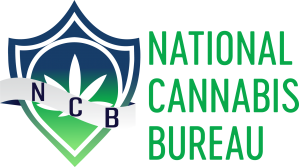While intense campaigns on either side of the issue are attempting to swing the March 7 vote, a new report released by the Yes on 820 campaign shows the myriad economic benefits Oklahoma could look forward to, should adult-use cannabis legalization be enacted.
The report, titled, “An Economic Impact and Tax Analysis of Oklahoma State Question 820,” outlines an analysis performed by Vicente Sederberg LLP and the Oklahoma Cannabis Industry Association, finding that the state is projected to gain $821 million in combined medical and recreational taxes, should State Question 820 pass.
Of that $821 million in tax revenue, $434 million would be new state revenue generated through the proposed 15% excise tax on recreational sales, in addition to standard state and local taxes. Adult-use sales are expected to reach approximately $1.841 billion in recreational sales and $2.478 billion in medical sales to qualified patients over that same five-year period.
Looking immediately ahead, Oklahoma is also estimated to bring in more than $65 million in cannabis tax dollars from recreational sales in 2024 alone, after a single year of implementation, rising to $105 million by 2028.
The analysis assumes that recreational sales will begin on January 1, 2024, even though it’s possible they might start sometime in 2023 if enacted. It also cites the state’s current cannabis market’s trials dealing with a downturn in wholesale prices. While it cites that most market observers believe this is temporary, the report assumed a conservative average price per ounce for retail, at $175.
The report predicts that as the Oklahoma market reaches maturity in 2028, the rate of tax revenue will slow down “due to downward pricing pressures from business competition and free market economic principles.” Authors also state that the report’s projected tax revenue is set at a more conservative pace than what other states have realized recently, meaning that the state could potentially generate far more tax revenue than the analysis predicts.
Recreational legalization seems like the next rational step, as the Oklahoma medical market has shown exceptional strength since it was first enacted. The report notes that the state has the highest patient-to-population rate in the country, around 12%, along with its “impressive growth” since voters first approved it in 2018.
Yes on 820 Campaign Manager Michelle Tilley told ABC 5 News that the group doesn’t take the special election for granted. She emphasized the need for an intense final push to ensure Oklahomans in favor get out and vote, knowing that the question may not pass if they sit back.
“We can feel the energy and intensity picking up,” Tilley said. “More and more people are joining the effort wanting to know how they can help.”
The opposition has generally cited concern for Oklahoma’s children; one new-fly formed coalition against recreational cannabis legalization is titled “Protect Our Kids No 820,” joined by Tulsa County District Attorney Steve Kunzweiler, former governor Frank Keating, and other officials arguing that cannabis accessibility will actually hurt Oklahomans.
“The practical aspect of it is that it’s just not safe for children, it’s really not safe for any adults. We don’t know enough about what’s being put in these substances. I don’t think the regulation has ever approached what they promised us,” Kunzweiler told 2 News Oklahoma, conveniently failing to cite any research displaying the perceived danger of cannabis for “any adults.”
Tilley argued that SQ 820 will actually be a positive step to protect children, in that each product will be stringently regulated and tested. She also cited that new revenue would help to fund education.
Research has shown that, counter to the DA’s argument, that states with legal recreational cannabis do not see an increase in youth consumption. One 2022 study also investigated the notion that cannabis legalization will result in the reduced perception of risk of harm from cannabis among children, though the results found that individual, child-level characteristics were the main indicator around youth attitudes toward cannabis, not state policy.
The post Oklahoma Could Generate Nearly $500M if Recreational Pot is Legalized appeared first on High Times.

